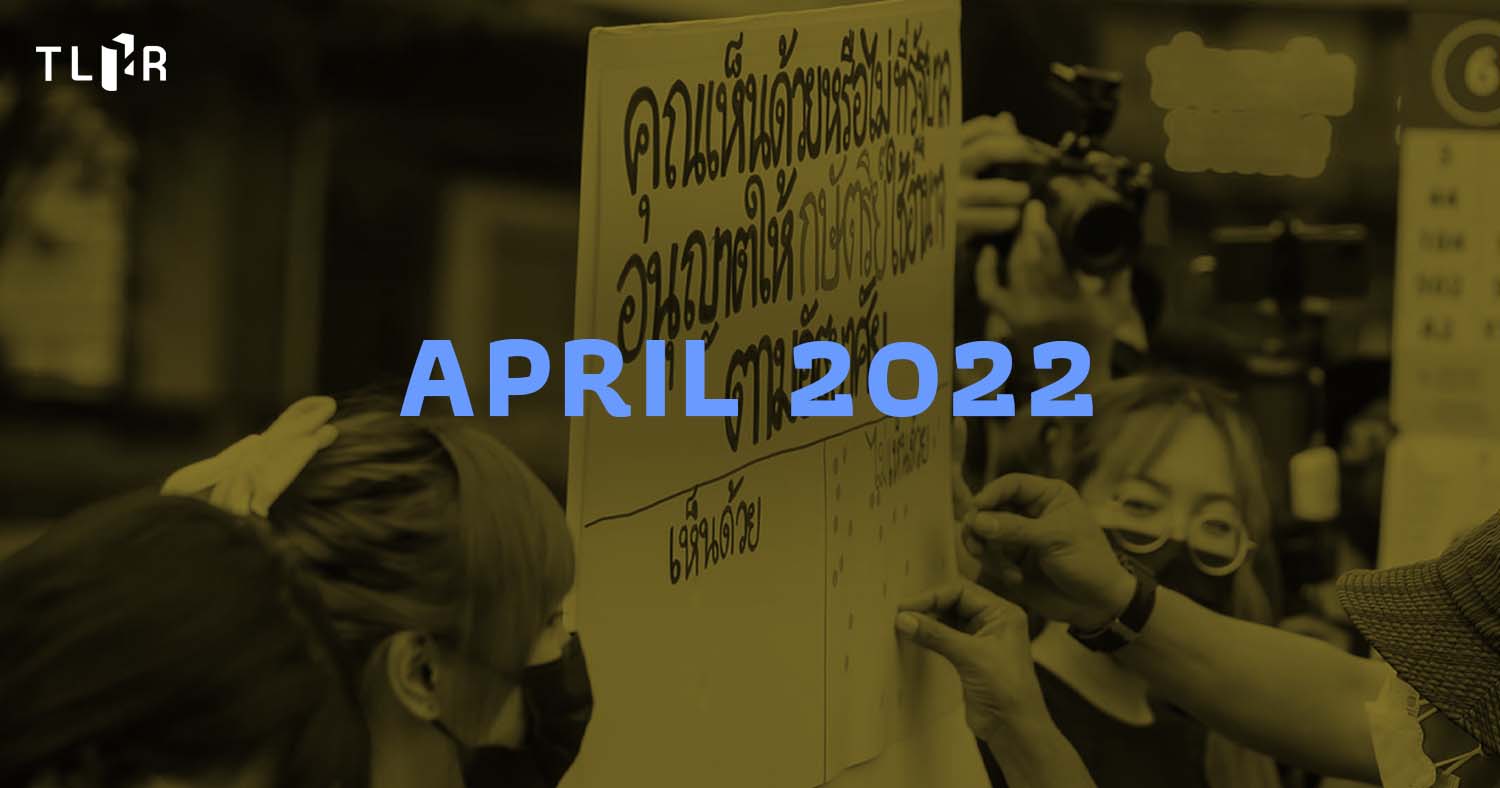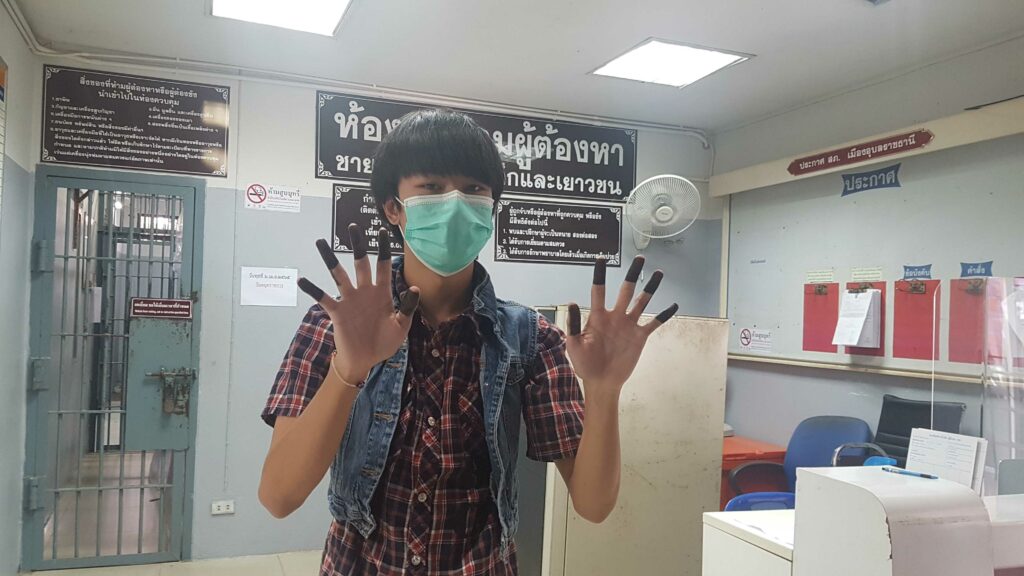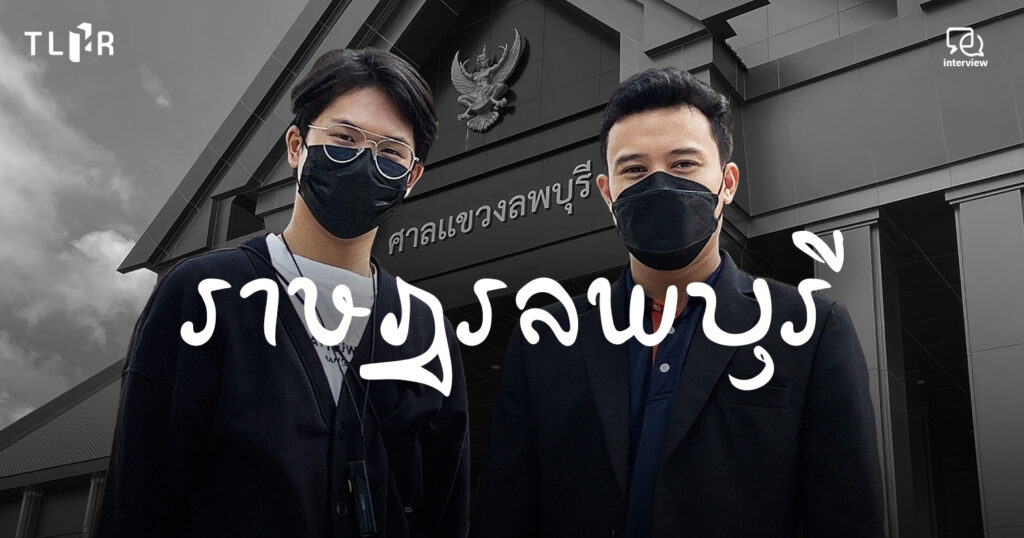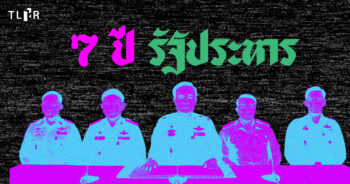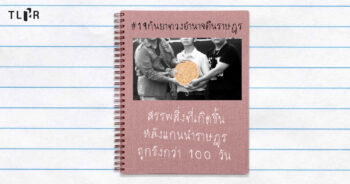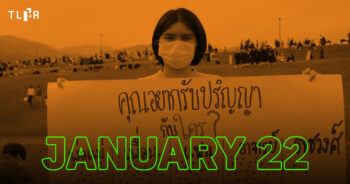In April 2022, the situation regarding political prosecution remains rampant, especially section 112 cases, which have rose by more than 10 cases putting the total number above 204 in the past one and a half year. At the same time, prosecution of political activities using the Emergency Decree have continued despite the tendency of acquittal by the court and non-prosecution by public prosecutors.
According to the Thai Lawyers for Human Rights, at least 1,808 people in 1,065 cases have been prosecuted due to political assemblies and expression since the “Free Youth” rally on 18 July 2020 until 30 April 2022. Among this number were 280 youths younger than 18 years old.
Compared to last month (March 2022)’s statistics, this month saw an increase of 13 new people accused in 20 cases (only counting those not previously accused), including 5 youths.
If we also include those accused multiple times, we have found that there would be at least 3,589 incidents of accusation/persecution in total.
The accusation can be grouped according to mainly used charges, as follows:
1. The “royal defamation” charge under Section 112 of the Penal Code involving at least 190 individuals in 204 cases.
2. The “sedition” charge under Section 116 of the Penal Code involving at least 125 individuals in 39 cases.
3. Charges of violation of the Emergency Decree involving at least 1,451 people in 630 cases (since May 2020 where first accusation of political protesters and activists was initiated).
4. Charges under the Public Assembly Act involving at least 107 people in 75 cases.
5. Charges under the Computer Crime Act involving at least 129 people in 148 cases.
6. Contempt of court charge involving at least 34 people in 18 cases and insult to court charge involving at least 25 people in 6 cases.
Out of the said 1,065 cases, 183 were concluded mainly by the accused persons agreeing to pay fine at the police’s stage or court’s stage, where the offence contains fine penalty. Nine cases were the result of public prosecutors’ decision against indictment.
The Thai Lawyers for Human Rights have also identified the following trends regarding political prosecution in April 2020:
Section 112 cases increased by 10 along with the number of people detained.
10 out of total 20 cases in the month of April involve Section 112 with seven new people accused. Many cases concerned political activities occurred in 2020-2021. As a result, the overall number of the accused individuals increased to 204 cases, including 16 youths.
One of the key cases in the previous month was the arrest of Talu Wang group members. Four 17-year-old people, including Supitcha ‘Maynu’, ‘Baipo’, Netiporn, and Benchamaporn ‘Ploy’, were accused in three cases of sharing posts from the Talu Wang Facebook Page about the monarchy budget 2022 and for organizing polls with the question, “Do you agree that the government has allowed the monarchy to use the power arbitrarily?”, in four different locations in Bangkok. The police had not issued summon warrants for the two occasions, but requested arrest warrants from the court directly. The trend related to arresting and prosecuting Taluwang members are expected to continue intensely.
Meanwhile, two important cases also occurred last month. Both were filed with the Nang Loeng Police Station by Apiwat Khantong, Gen Prayuth Chan-ocha’s lawyer. The first case involved Yukti Mukdawijitra, Thammasat University lecturer and member of Thai Academic Network for Civil Rights, who was accused of a tweet dated May 2020. The second case involved Suthipongse Heart Thatphithakkul, who was accused of sharing a text from the Royal World Thailand Facebook Page related to the King Rama X’s health. The said post was shared more than 20,000 times, yet no other attempts of prosecution, including even that of the page owner who created the content, have been reported.
Kittipon ‘Fluke’, a 19-year-old graphic designer and activist, was charged by Mueang Ubon Ratchathani Police Station retroactively for holding a picture frame with the text “I’m starving during the reign of King Rama X” during the car mob activity on 15 August 2022.
In addition, there were cases of “Prapasorn” and Maneekwan at Mueng Krabi Police Station and Bang Kaew Police Station in Samut Prakan, respectively. The court issued arrest warrants with Section 112 charge on them in complaints filed by ordinary citizens. The first was accused of writing a Facebook post containing a link to the “Royalist Marketplace”, while the latter was accused of sharing a post from the KonthaiUK Facebook Page in May 2020.
The recent development of legal harassment reinforces the problem related to the interpretation of Section 112, which is still enforced in an overbroad manner allowing anyone to file a complaint. The law has become a political tool and a standard, on which the state authorities rely to stifle expression.
At the same time, the number of people detained as a result of Section 112 charge has also increased this month. In addition to Weha, who had been jailed since March, there were also Tantawan Tuatulanon, who had her bail revoked in a case of live broadcasting before a royal motorcade, and Sombat Thongyoi, who received an imprisonment sentence of 6-year term from the Court of First Instance for posting three texts, including “Very brave, very good, thank you”. The trend related to court orders and decisions based on overbroad interpretation of this provision needs to be closely monitored.
Last month, the court also ordered a closed trial for the case of Mongkol ‘Bas’ in Chiang Rai, claiming the public order and good moral. As such, the transparency and due process are two other issues in the Section 112 proceedings that deserve our attention.
The Court dismissed another Car Mob/Emergency Decree case, while many others are continuously being processed by public prosecutors.
With regards to the use of the Emergency Decree with political assemblies, one such case was reported this month at the Nang Loeng Police Station. The alleged offender has not yet reported himself to hear the charges. In any case, despite the gradual reopening of the country and the easing of measures, the government insists on enforcing the Emergency Decree, which has now been in effect for over two years and one month.
Last month, the Court passed a decision dismissing another Lopburi car mob case. The case is considered the first car mob case from 2021 that reached the litigation process as well as court’s decision. The Court held that the assembly, which took place in an open, well-ventilated space where participants and police could move around freely, was not considered an assembly in a crowded space. The assembly also proceeded peacefully. Thus, the act was an exercise of the right to freedom of assembly according to the Constitution. With that, there are now a total of eight cases of violation of Emergency Decree that have been dismissed by the Court.
Nevertheless, public prosecutors continue to indict cases containing the charge of violation of the Emergency Decree, despite the tendency of dismissal by the court and non-prosecution by some public prosecutors. In April, public prosecutors went ahead and indicted cases of the car mob activity in Uttaradit, the car mob activity in Nakhon Ratchasima, the car mob activity in Singburi, the car mob activity in Hat Yai, and the youths attending the activity at the Talu Fah Village.
Moreover, police have continued to apprehend observers or independent press members present at the Din Daeng protests at the end of 2021 with the charge of violating the Emergency Decree. Such instances include Witsanu and Nantaporn arrested at the end of last month.
Even though a large number of activists have submitted a letter to the Office of the Attorney General urging for an end to the prosecution or withdrawal of cases related to political assemblies, especially those containing charge of violation of the Emergency Decree during the protests in October 2020, many of which are still pending witness hearings, there has been no response from them. Currently, all of the cases are still proceeding as usual.
